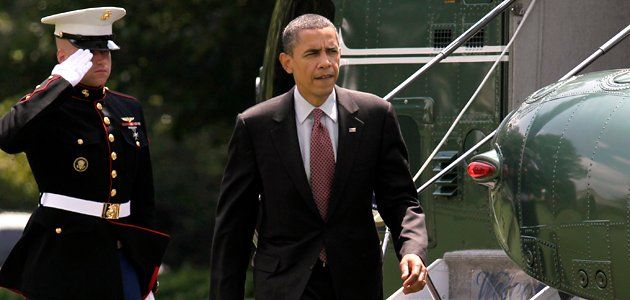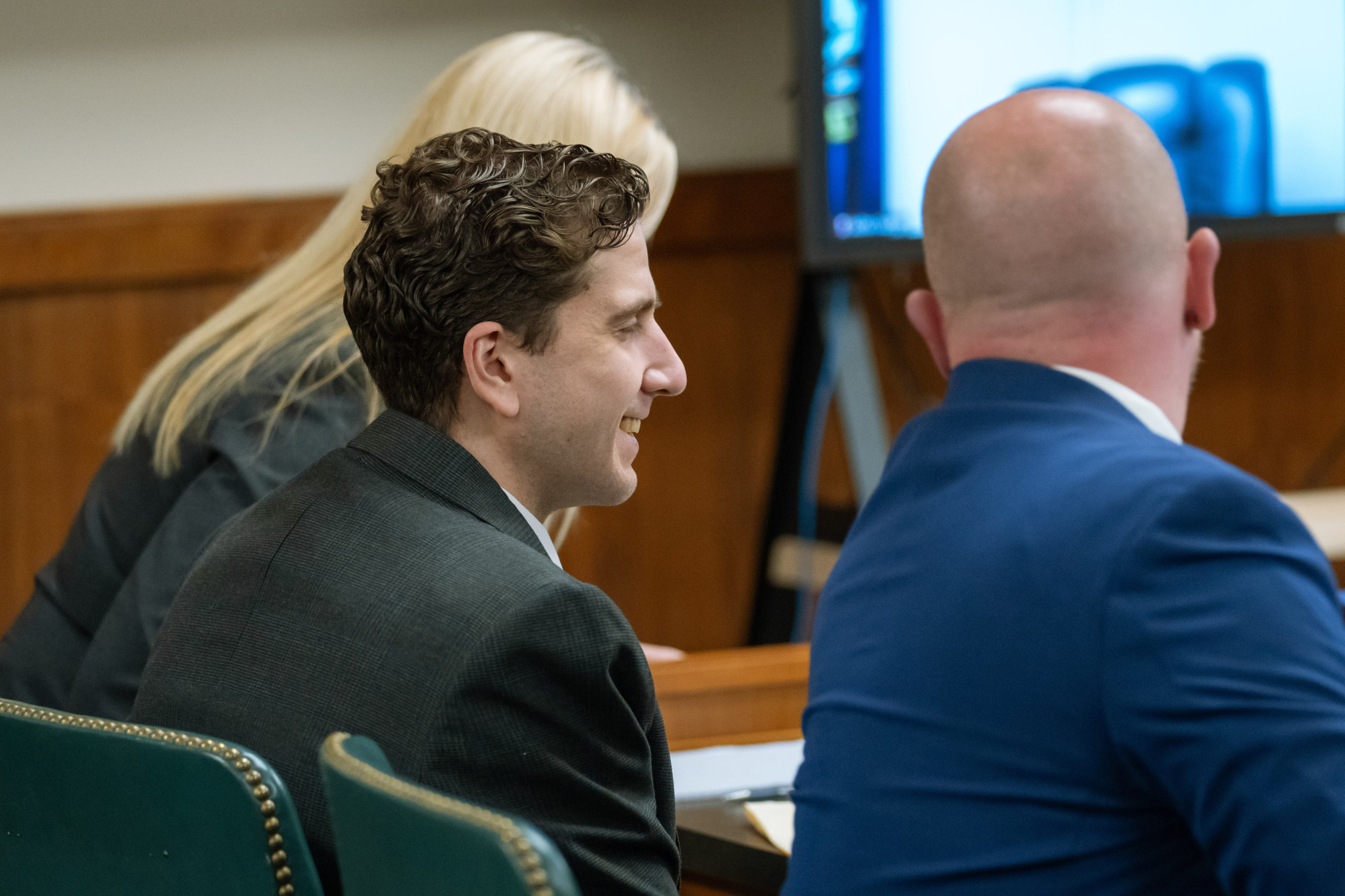
Since he first came from nowhere to outmaneuver Hillary Clinton in the 2008 presidential campaign, Barack Obama has been deemed brilliant at political chess. Like any grandmaster, Obama can think several moves ahead, and he knows when to concede a tactical setback, as he's already done by indicating that the GOP is going to show strong in the upcoming congressional election. So it wouldn't be surprising if Obama were starting to worry about what lies even further down the board. So bleak is the economic outlook that the president may find himself running out of moves—perhaps even in danger of being checkmated—as he faces reelection in 2012.
That was the unspoken subtext Friday as President Obama put the best possible face on a grim jobs report for July and an ever-darkening economic outlook—not just for the rest of 2010, but for 2011 as well. He talked up the "183,000 jobs" added by the manufacturing sector this year—and alluded hopefully to a USA Today story that suggested some plants are returning to the U.S. "for the first time"—as well as new legislation that will aid the states. What was left unsaid was that Obama may have already politically maneuvered himself out of the only major remedy that could bring unemployment down and growth up enough to assure his reelection: another giant fiscal stimulus. After engendering Tea Party and centrist-Democratic resistance to more government spending by pushing his health-care plan—and losing altitude rapidly in the polls—Obama no longer seems to have the political capital he may well need, in the end, to save his presidency.
Most economists would say it's far too early to declare that we're in an economic endgame. "There's a long time between now and the next presidential election and lot of economic uncertainty," says Harvard's Lawrence Katz, the former chief economist for the Department of Labor during the Clinton administration. "There are many policies the administration could adopt between now and then." Among them: a payroll-tax holiday, targeted tax cuts for the middle class, and further extensions of unemployment compensation. "Historical evidence suggests incumbent parties do well if growth is rapid even if unemployment is high," Katz adds.
But Katz, like other economists, says it's almost impossible to imagine growth or unemployment numbers getting anywhere close to where they were in 2007, before the financial crisis, by 2012. It now appears that the spurt of new jobs seen earlier in year—most notably, the 241,000 jobs created in April—was not the start of a new trend of higher growth but a misleading aberration. The loss of 131,000 jobs and the anemic addition of just 71,000 private sector jobs in July, both far worse than the forecasts, amounted to a devastating blow to recovery. Last week Goldman Sachs forecast less than 2 percent growth for 2011, and the unemployment rate seems stuck at 9.5 percent or higher, with the possibility that it could tip back over 10 percent. With interest rates still close to zero, monetary policy can do little more (though the Fed will debate new measures at its meeting Aug. 10, when it is expected to downgrade its economic outlook as well). And political discontent over government spending is such that a much larger fiscal stimulus—urged on Obama at the start of his presidency by such economists as Paul Krugman and Joseph Stiglitz—has now become out of the question. "This town has given up on that completely," says Heidi Shierholz of the left-leaninig Economic Policy Institute. "He doesn't have anything big to hang his hat on."
It is further evidence that, facing a historic economic crisis and the prosecution of two ongoing wars, Obama may have been playing some bad political chess when he decided to make health-care reform his first-year priority. As it turned out, health care was the trigger for a popular reaction against "too much government." Shierholz says, "The health-care bill was a hugely important foundation for big change. But the way it worked out, we didn't get a real discussion about another huge stimulus package." Now, with his support so thin on Capitol Hill, Obama will have trouble getting any major new measure passed. "There is nothing inconsistent in having a long-run focus on the deficit and a short-run focus on economic growth," Katz says. But the political atmosphere is so angry and mistrustful that all the issues that should be responsibly divided up are instead thrown together in a toxic stew. Neither a stimulus nor revenue-generating ideas like carbon taxes, cap-and-trade, or value-added taxes are on the table. The GOP can't move beyond supply-side tax cuts for the rich; the Democratic leadership is terrified of the party's own fiscal conservatives. The intellectually shallow state of debate recently provoked columnist Krugman into calling Rep. Paul Ryan, the GOP's leading policy voice on cutting the deficit, a "flim-flam man."
This policy paralysis is almost certainly the backstory behind the disintegration of Obama's economic team this summer. Last week a second senior member of Obama's economic team, Christina Romer, chairwoman of the Council of Economic Advisers, announced she was leaving, only a few weeks after the resignation of budget chief Peter Orszag. Romer was criticized for overestimating the impact of the nearly $800 billion stimulus, saying it would bring unemployment down to 8 percent from 10 percent. It's somewhat ironic, however, that Romer should be the one to go when she had pushed for a larger stimulus than chief economic adviser Larry Summers and Treasury Secretary Tim Geithner, who are staying on.
The truth is that Romer and just about everyone else underestimated the headwinds that continue to beat the economy down: state and local budget crises, European austerity, consumer and housing anemia, and a political debate that is still tethered to the somehow-not-debunked idea that deficit cutting should be priority one, despite the dangers of deflation and double-dip recession. "No one had any idea of the depths of the recession we were in for," says Shierholz. Nor does anyone have a good idea for how to get out of it, beyond a lot more government spending that the government itself has declared a political nonstarter.
Michael Hirsh is also the author of At War with Ourselves: Why America Is Squandering Its Chance to Build a Better World.
Uncommon Knowledge
Newsweek is committed to challenging conventional wisdom and finding connections in the search for common ground.
Newsweek is committed to challenging conventional wisdom and finding connections in the search for common ground.
About the writer
To read how Newsweek uses AI as a newsroom tool, Click here.








